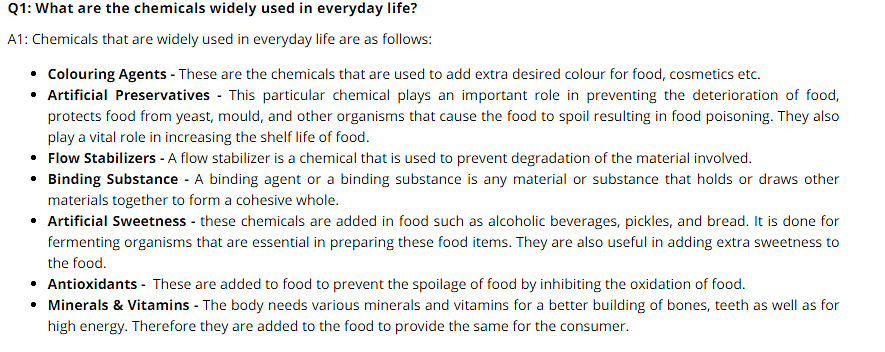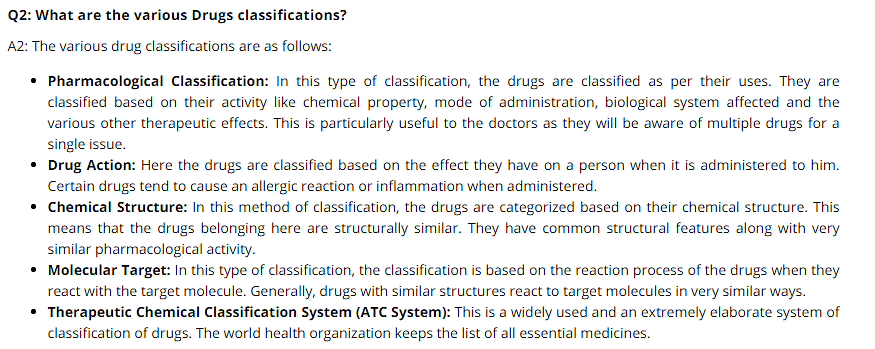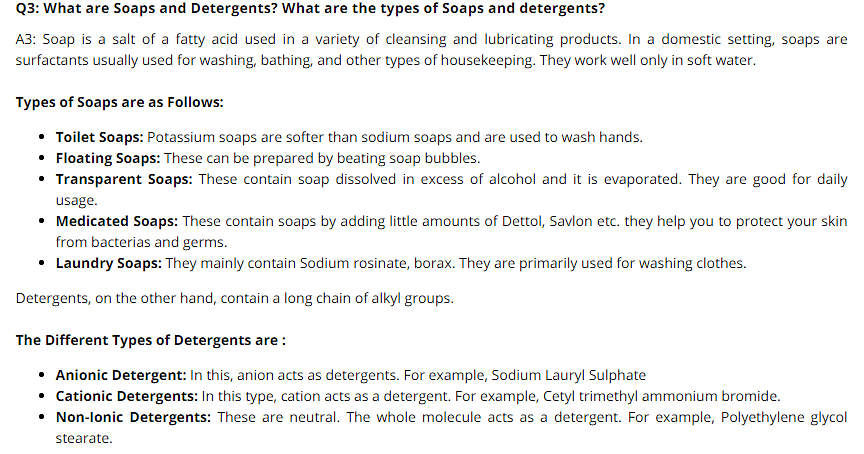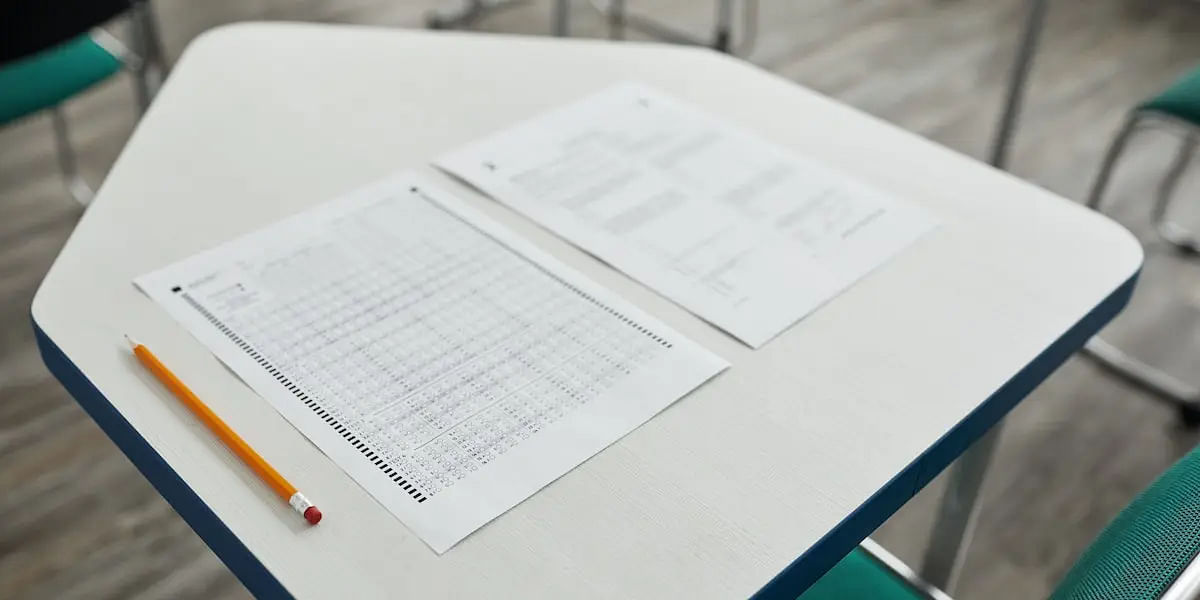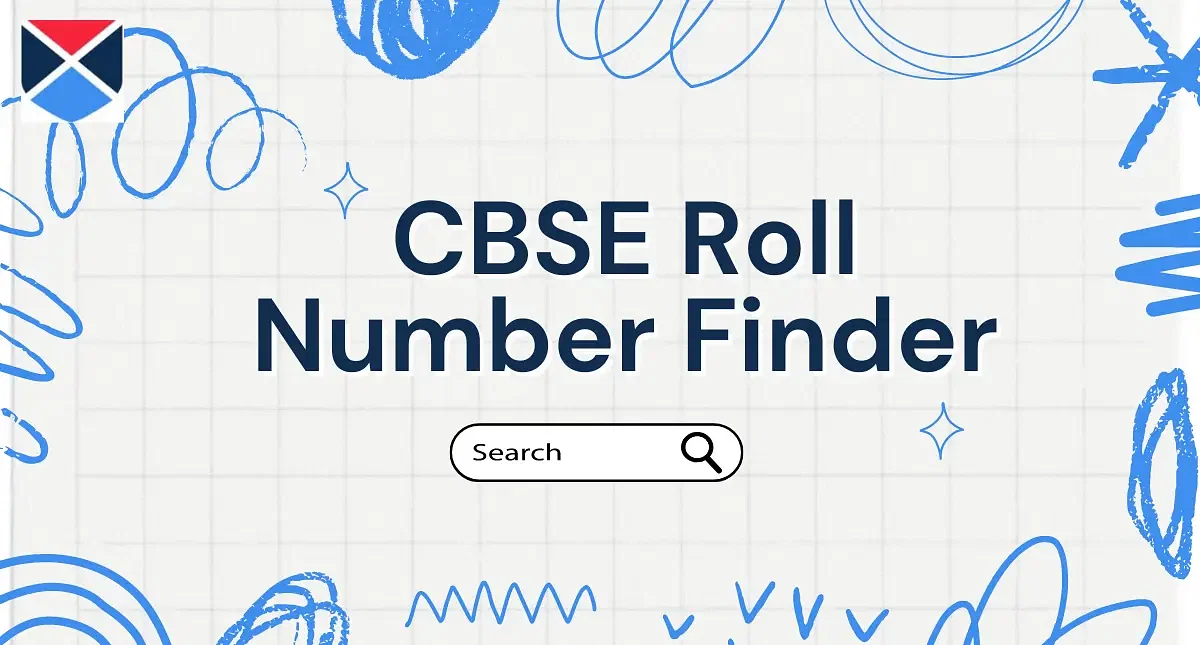Find detailed information on Chemistry in Everyday Life CBSE class 12th. Get to know the topics included in the chapters, important notes and critical questions for preparations.
Students can prepare for their 12th board exam using the provided important notes. After extensive research, these notes were compiled by a topic specialist and written in plain language to make Chemistry in everyday life class 12th more understandable and relatable. These notes clearly describe the idea, containing equations and diagrams and crucial problems.
Chemistry is a fascinating subject that has made significant contributions to humanity. Scientists have made significant contributions to society, from the discovery of penicillin. Chemistry is an important subject in the academic world because it offers many opportunities. Through chemistry, we learn what the substance around us is made.
Students may find it challenging to grasp the principles during class time. Students should use online reference materials to solve this problem to get their worries clarified. Their exam confidence will improve due to regular practice of weak concepts. Students are encouraged to explore and answer critical questions provided in this article or from the NCERT textbook to develop conceptual understanding.
All You Need to Know About Chemistry in Everyday Life for Class 12th
Chemistry in everyday life is an essential chapter for class 12th. This article discusses chemistry in daily life class 12th NCERT and has notes and important questions about the chapter. It will help you prepare for your exams effectively. Please find the components of Chemistry in Everyday Life in the following sections.
Drugs in Everyday Life
Drugs are chemicals between ~100u – 500u. The drugs interact with carbohydrate targets to produce a biological response. When the natural response is useful, they are called medicines and are used to prevent, diagnose, and treat diseases. Chemicals used to cure illnesses and reduce pain are called drugs or medicine.
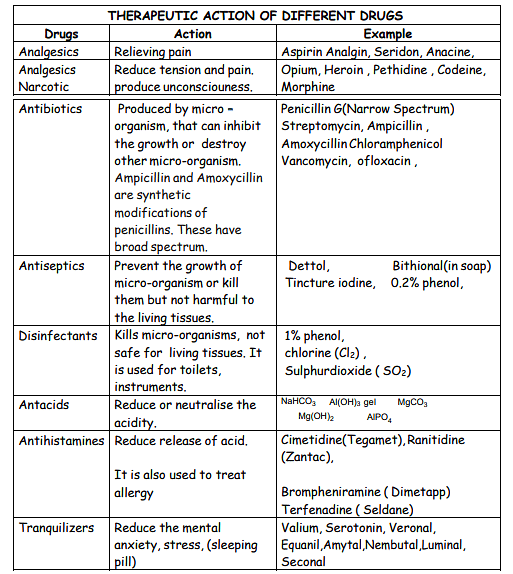
Artificial Sweetening Agents
There are four Artificial Sweetening Agents: Saccharin, Aspartame, Acesulfame-K, and Sucralose. People use artificial sweeteners when they have diabetes, because of their dental and periodontal disease concerns, or when they lose weight. Artificial sweeteners in minimal quantities give foods sweetness.
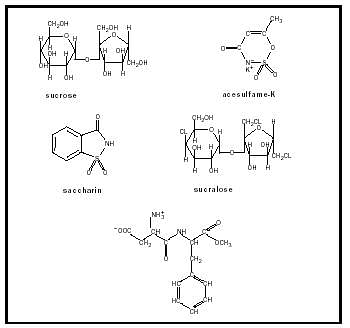
Food Preservatives
Food preservatives are chemical substances that prevent undesirable colour, flavour, and texture changes during processing and food storage, such as table salt, sugar, vegetable oils, sodium benzoate (C6H5COONa), etc.
Cleansing Agents
Soaps never work in hard water as they form insoluble salts with calcium and magnesium ions present in hard water. In Detergents, Sodium or potassium salts of sulphonic acids. They even work with hard water. Anionic Detergents are long-chain alcohols or hydrocarbons.
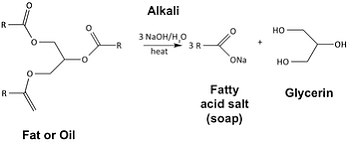
Summary of Chemistry in Everyday Life for Class 12th
Chemistry is essentially the study of materials and the development of new materials for the betterment of humans. A drug or medicine is a chemical agent which affects human metabolism and provides a cure for any ailment. If someone takes doses higher than recommended, they might negatively affect them. The use of chemicals for healing effects is called chemotherapy. Drugs interact with biological enzymes such as carbohydrates, proteins, lipids, and nucleic acids. These are also known as target molecules. Drugs are designed to interact with specific targets to have the slightest chance of affecting other marks.
It reduces the side effects and measures up the action of the drug. Drug chemistry centres around arresting microbes/destroying microbes, preventing the body from various infectious diseases, releasing mental stress, etc. Therefore, medications like antiseptics, analgesics, antacid disinfectants, antibiotics, and tranquillizers are used for a specific purpose. In addition, chemistry checks the population explosion and how antifertility drugs are prominent in our lives.
Food consumables such as sweetening agents, preservatives, antioxidants, flavours, edible colours, and nutritional supplements are added to the food to make it attractive and add nutritional value. Artificial sweeteners are used by those who need to check their calorie intake or have diabetes and avoid sucrose. Preservatives are added to the food to prevent spoiling due to microbial growth.
Important Questions from Chemistry in Everyday Life for Class 12th Students
Along with Chemistry in Everyday Life class 12th NCERT notes, we have a few important questions to help you with your class 12th. The questions and solutions to Chemistry in everyday life class 12th are:
Read More on NCERT Books for Class 12 Chemistry
Note:
In board exams, chemistry is an important topic because it contains a lot of chemical reactions and problems that are worth more marks. For this subject, students must learn the chapters regularly to do well. It is crucial to take note of the essential formulas and understand how to solve them in these chapters. There are explanations for all the reactions in the NCERT Solutions, which will make it easy for the students to prepare for their board. When answering complex questions in the exam, students will be better able to revise the chapters and recollect them.

